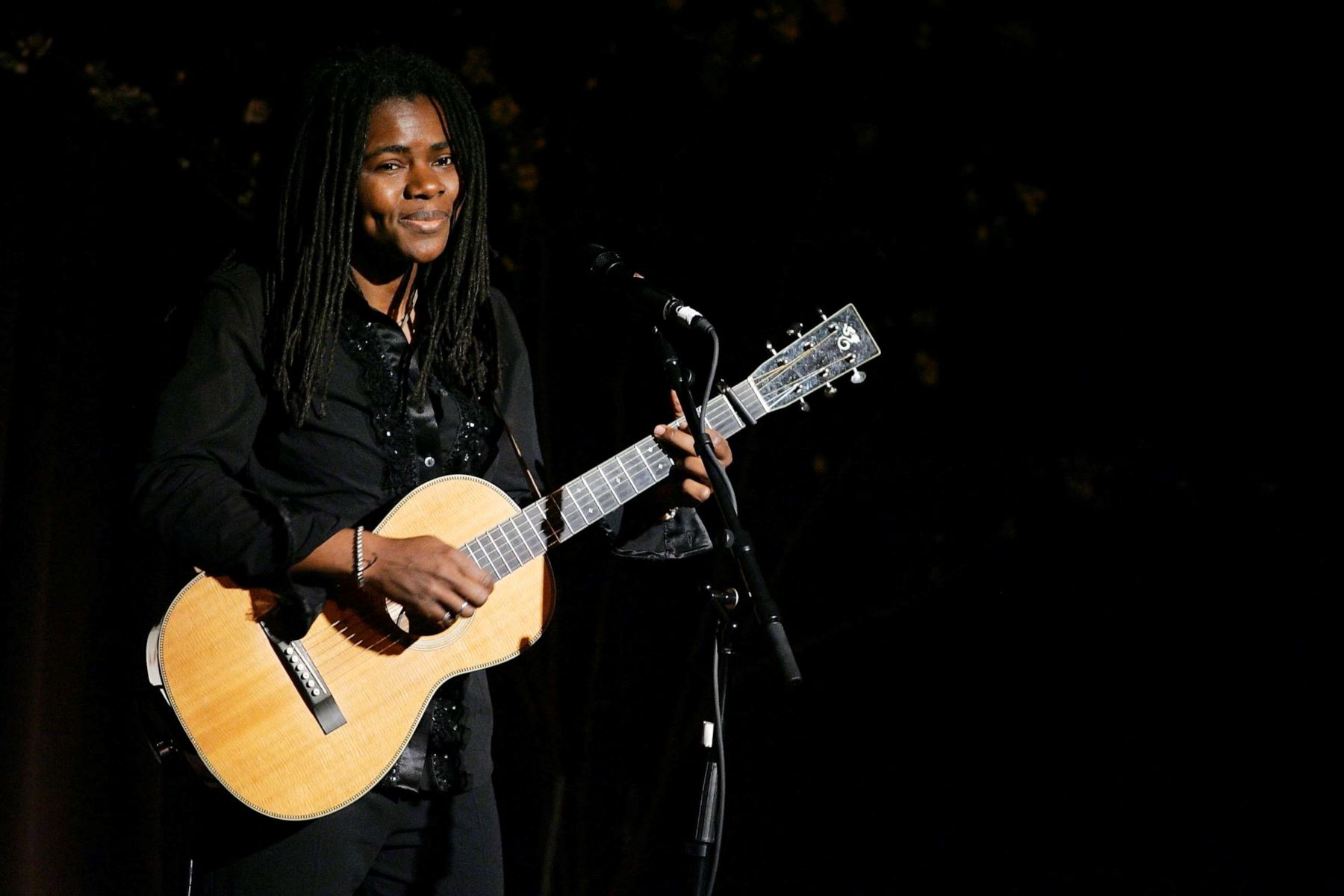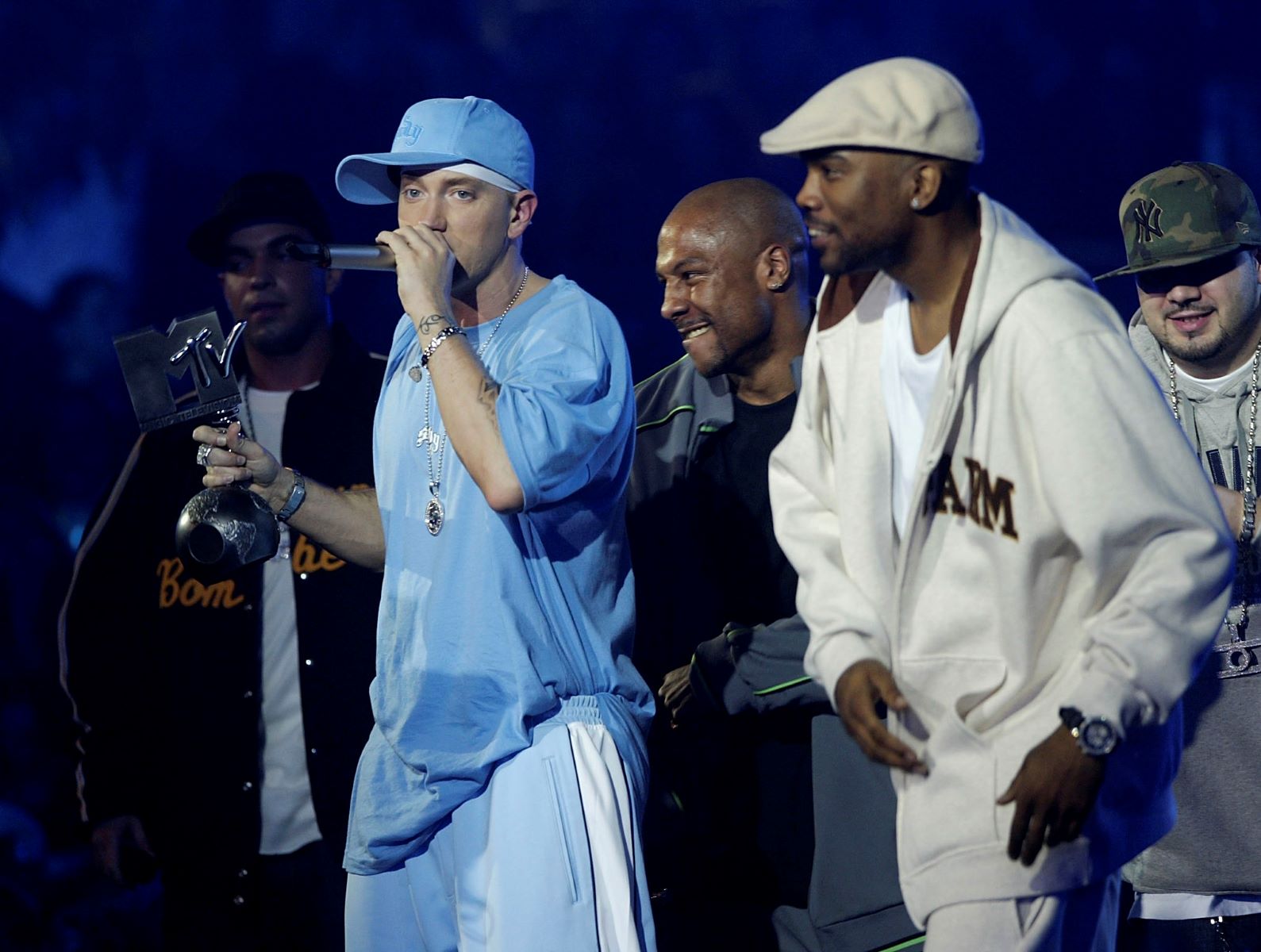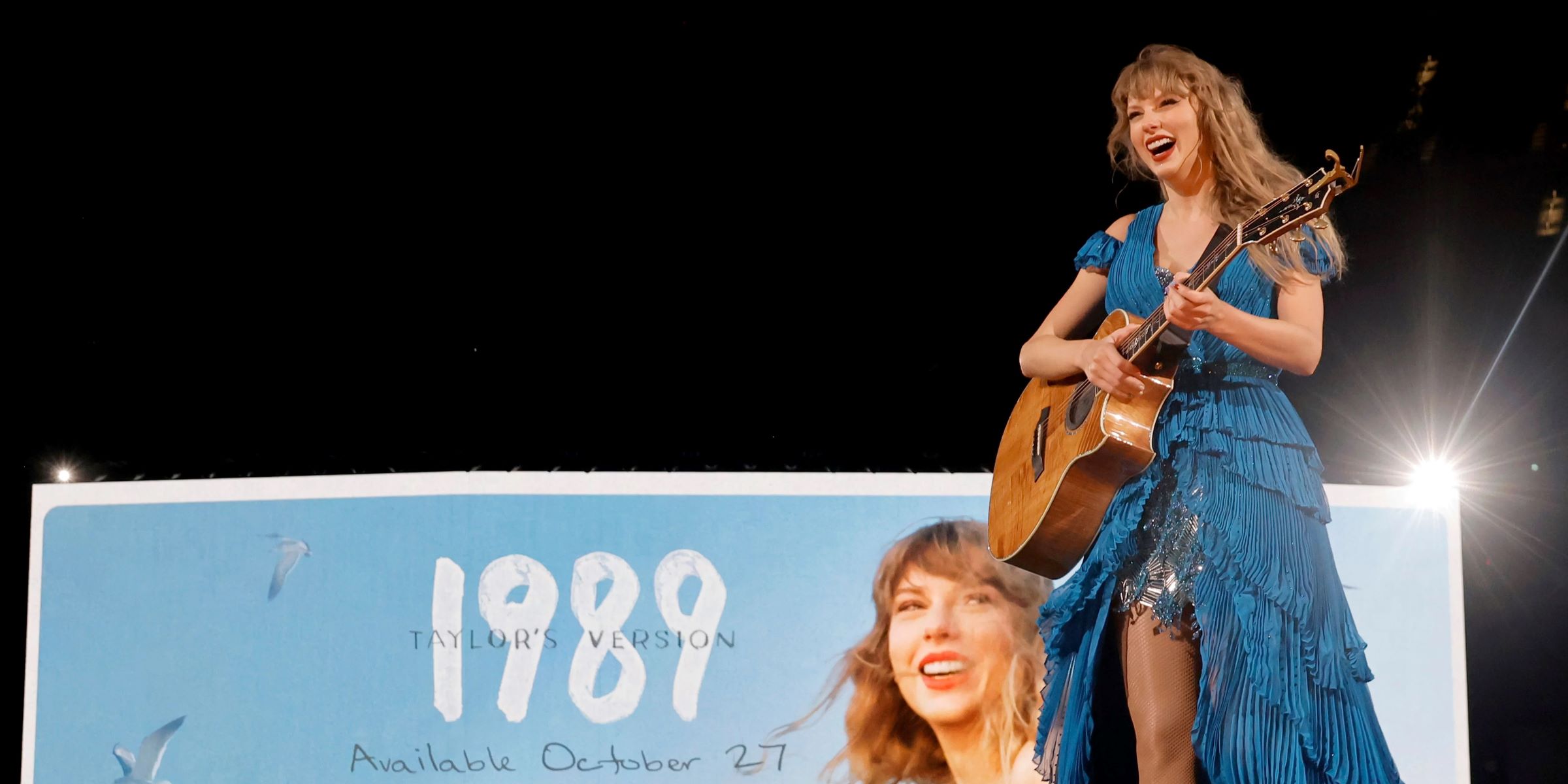

Music
Tracy Chapman’s Powerful Message In “Fast Car”
Published: January 9, 2024
Experience Tracy Chapman's powerful message in "Fast Car" and explore the impact of her music. Discover the emotional depth and social commentary in this iconic song.
(Many of the links in this article redirect to a specific reviewed product. Your purchase of these products through affiliate links helps to generate commission for Regretless.com, at no extra cost. Learn more)
Table of Contents
Introduction
Tracy Chapman's "Fast Car" is a timeless anthem that resonates with listeners across generations. Released in 1988 as part of her self-titled debut album, the song quickly captured the hearts of music enthusiasts worldwide. With its soul-stirring lyrics and captivating melody, "Fast Car" has left an indelible mark on the music industry and continues to inspire and provoke contemplation.
The song's enduring popularity can be attributed to its poignant storytelling and the raw emotion conveyed through Chapman's soulful vocals. As the opening chords of the guitar set the tone, listeners are drawn into a narrative that unfolds with striking honesty and vulnerability. Chapman's evocative storytelling transcends mere entertainment, delving into the complexities of human experiences and aspirations.
"Fast Car" has cemented its status as a classic, with its themes of hope, struggle, and the pursuit of a better life resonating with audiences from diverse backgrounds. The song's universal appeal lies in its ability to evoke empathy and introspection, inviting listeners to reflect on their own journeys and aspirations. Chapman's masterful storytelling invites us to step into the shoes of the protagonist, experiencing their trials, dreams, and resilience firsthand.
As we delve into the profound messages embedded within "Fast Car," we uncover a narrative that not only captivates our senses but also challenges societal norms and sheds light on pressing issues. Through this article, we will embark on a captivating journey to unravel the layers of meaning within "Fast Car" and explore the profound impact of Chapman's musical masterpiece.
Tracy Chapman's Background
Tracy Chapman, an influential singer-songwriter, emerged onto the music scene with a rare authenticity that immediately set her apart. Born in Cleveland, Ohio, on March 30, 1964, Chapman's early exposure to music and her innate talent paved the way for her remarkable career. Raised in a culturally diverse environment, she developed a deep appreciation for various musical genres, including folk, blues, and soul, which would later influence her distinctive sound.
Chapman's journey to stardom began when she received a guitar as a gift during her formative years. This pivotal moment ignited her passion for music and sparked a creative flame that would eventually illuminate the global stage. Her formative years were marked by a relentless dedication to honing her craft, and her commitment to authenticity and storytelling became the cornerstone of her artistic identity.
In 1988, Chapman released her self-titled debut album, which included the iconic track "Fast Car." The album's critical acclaim and commercial success catapulted Chapman to international fame, earning her multiple Grammy Awards and widespread recognition for her exceptional songwriting and emotive vocals. Chapman's introspective lyrics and soul-stirring melodies resonated deeply with audiences, establishing her as a trailblazer in the music industry.
Beyond her musical contributions, Chapman's commitment to social activism and advocacy has further solidified her legacy. Her unwavering dedication to addressing social injustices and championing human rights issues has earned her widespread admiration and respect. Through her music and philanthropic endeavors, Chapman continues to inspire and empower individuals around the world.
Tracy Chapman's profound impact on the music landscape transcends mere accolades; it embodies a legacy of authenticity, resilience, and unwavering dedication to effecting positive change. Her ability to intertwine personal narratives with universal themes has solidified her position as an influential figure in both the music industry and the realm of social activism. Tracy Chapman's indelible mark on the world of music and her enduring influence serve as a testament to the transformative power of art and the unyielding spirit of an artist committed to making a difference.
"Fast Car" Lyrics Analysis
Tracy Chapman's "Fast Car" captivates audiences with its poignant storytelling and profound lyrical depth. The song's narrative unfolds with raw emotion, offering a compelling portrayal of the protagonist's struggles, aspirations, and resilience. As we delve into the lyrical landscape of "Fast Car," we are immersed in a world where hope and hardship intersect, weaving a tapestry of human experiences that resonates with universal truths.
The opening verse sets the stage for the protagonist's yearning for a better life, encapsulating a sense of entrapment and the desire for liberation. The lyrics, "You got a fast car, I want a ticket to anywhere. Maybe we make a deal, maybe together we can get somewhere," encapsulate the protagonist's longing for escape and the pursuit of a brighter future. This yearning for freedom and opportunity serves as a powerful undercurrent that propels the narrative forward, inviting listeners to empathize with the protagonist's aspirations.
Furthermore, the chorus of "Fast Car" amplifies the protagonist's yearning for transcendence, as they seek to break free from the confines of their current circumstances. The poignant repetition of "You got a fast car, is it fast enough so we can fly away?" underscores the protagonist's fervent desire for a life unbound by limitations, echoing the universal human longing for autonomy and fulfillment.
Chapman's evocative lyrics also shed light on the complexities of relationships and the impact of socioeconomic challenges on personal dynamics. The line "I remember we were driving, driving in your car. The speed so fast, I felt like I was drunk" conveys a sense of exhilaration and escapism, juxtaposed with the underlying struggles that permeate the protagonist's reality. This juxtaposition serves as a poignant reminder of the delicate balance between dreams and adversity, offering a nuanced portrayal of human resilience and the pursuit of hope amidst adversity.
In essence, "Fast Car" transcends the confines of a typical love song, delving into the intricacies of human experiences, aspirations, and the pursuit of a better life. Chapman's masterful storytelling and emotive delivery elevate the song to a timeless anthem that continues to resonate with audiences worldwide. The lyrical analysis of "Fast Car" unveils a narrative that not only captivates our senses but also invites introspection, evoking empathy and contemplation of the universal themes it embodies.
Social and Political Themes
Tracy Chapman's "Fast Car" transcends the realm of personal narratives, delving into profound social and political themes that resonate with global audiences. The song serves as a poignant commentary on the socioeconomic challenges and systemic barriers that impact individuals striving for a better life. Through its evocative lyrics and emotive delivery, "Fast Car" sheds light on the pervasive issues of poverty, class disparity, and the enduring pursuit of upward mobility.
The song's narrative encapsulates the protagonist's yearning for escape from the cycle of poverty and the relentless pursuit of a brighter future. Chapman's poignant portrayal of the protagonist's struggles reflects the broader societal realities faced by countless individuals navigating economic hardships. The lyrics, "You got a fast car, I want a ticket to anywhere. Maybe we make a deal, maybe together we can get somewhere," encapsulate the pervasive desire for upward mobility and the pursuit of opportunities beyond the constraints of socioeconomic limitations.
Furthermore, "Fast Car" serves as a powerful reminder of the systemic challenges that perpetuate social inequalities. The protagonist's aspirations and resilience in the face of adversity mirror the experiences of marginalized communities striving for socioeconomic advancement. Chapman's masterful storytelling unveils the complexities of societal structures, shedding light on the barriers that impede individuals from transcending their circumstances.
Moreover, the song's exploration of the impact of poverty and limited opportunities on personal relationships underscores the far-reaching ramifications of socioeconomic disparities. The line, "You got a fast car, is it fast enough so we can fly away?" poignantly encapsulates the yearning for liberation from the constraints of poverty and the pursuit of a life unbound by systemic limitations. Chapman's astute commentary on the intersection of personal aspirations and societal challenges amplifies the song's resonance, inviting listeners to contemplate the broader implications of social and economic inequities.
In essence, "Fast Car" serves as a compelling narrative that not only resonates on a personal level but also serves as a poignant reflection of the pervasive social and political themes that shape the human experience. Chapman's ability to intertwine personal narratives with universal social commentary underscores the transformative power of music as a catalyst for introspection and advocacy. The enduring impact of "Fast Car" lies in its ability to provoke contemplation and inspire dialogue on the pressing social and political issues it encapsulates.
Impact and Legacy of "Fast Car"
Tracy Chapman's "Fast Car" has left an indelible mark on the music landscape, transcending generations and genres to carve out a lasting legacy that resonates with audiences worldwide. The song's profound impact extends beyond its initial release, solidifying its status as a timeless anthem that continues to inspire and provoke contemplation.
From its debut in 1988 to the present day, "Fast Car" has garnered widespread acclaim for its emotive storytelling, soul-stirring melodies, and thought-provoking lyrical depth. Chapman's evocative portrayal of the protagonist's struggles, aspirations, and resilience has resonated with listeners from diverse backgrounds, fostering a profound emotional connection that transcends cultural boundaries.
The song's enduring legacy is evident in its ability to evoke empathy and introspection, inviting listeners to reflect on their own journeys and aspirations. "Fast Car" serves as a poignant reminder of the universal human longing for autonomy, fulfillment, and the pursuit of a better life, resonating with individuals navigating their own paths toward self-realization and transcendence.
Furthermore, "Fast Car" has transcended the confines of a typical love song, delving into the intricacies of human experiences, aspirations, and the pursuit of a better life. Chapman's masterful storytelling and emotive delivery have elevated the song to an anthem that encapsulates the complexities of the human spirit, offering solace and resonance to those grappling with their own trials and triumphs.
The song's impact also extends to its profound commentary on social and political themes, shedding light on the pervasive issues of poverty, class disparity, and the enduring pursuit of upward mobility. Through its evocative lyrics and emotive delivery, "Fast Car" serves as a poignant reflection of the systemic challenges that impact individuals striving for a better life, amplifying its relevance in contemporary societal discourse.
Tracy Chapman's "Fast Car" stands as a testament to the transformative power of music, embodying a legacy of authenticity, resilience, and unwavering dedication to effecting positive change. Its enduring influence serves as a testament to the timeless relevance of art in illuminating the human experience and inspiring meaningful dialogue on the pressing issues it encapsulates.
The impact and legacy of "Fast Car" continue to resonate with audiences, underscoring the enduring power of music to transcend barriers, provoke contemplation, and inspire meaningful change.
Conclusion
In conclusion, Tracy Chapman's "Fast Car" stands as a timeless masterpiece that transcends the boundaries of music, resonating with audiences on a profound and universal level. The song's enduring impact is rooted in its ability to intertwine personal narratives with profound social and political commentary, inviting listeners to embark on a journey of introspection and empathy.
Through Chapman's evocative storytelling and soul-stirring melodies, "Fast Car" delves into the complexities of human experiences, aspirations, and the pursuit of a better life. The protagonist's yearning for escape from the cycle of poverty and the relentless pursuit of a brighter future serves as a poignant reflection of the systemic challenges that impact individuals striving for upward mobility. Chapman's astute commentary on the intersection of personal aspirations and societal challenges amplifies the song's resonance, fostering meaningful dialogue on pressing social and political issues.
Furthermore, "Fast Car" transcends the confines of a typical love song, offering a nuanced portrayal of human resilience and the pursuit of hope amidst adversity. The song's profound impact extends beyond its initial release, solidifying its status as a timeless anthem that continues to inspire and provoke contemplation. Chapman's ability to intertwine personal narratives with universal social commentary underscores the transformative power of music as a catalyst for introspection and advocacy.
As we reflect on the enduring legacy of "Fast Car," it becomes evident that the song's impact transcends generations, fostering a profound emotional connection that resonates with individuals from diverse backgrounds. Tracy Chapman's unparalleled artistry and unwavering commitment to authenticity have solidified "Fast Car" as a poignant reflection of the human experience, offering solace and resonance to those navigating their own paths toward self-realization and transcendence.
In essence, "Fast Car" serves as a testament to the transformative power of music, embodying a legacy of resilience, authenticity, and unwavering dedication to effecting positive change. The song's ability to provoke contemplation, inspire empathy, and foster meaningful dialogue underscores its enduring relevance in contemporary societal discourse. Tracy Chapman's "Fast Car" continues to stand as a timeless testament to the enduring power of art in illuminating the human experience and inspiring meaningful change.














